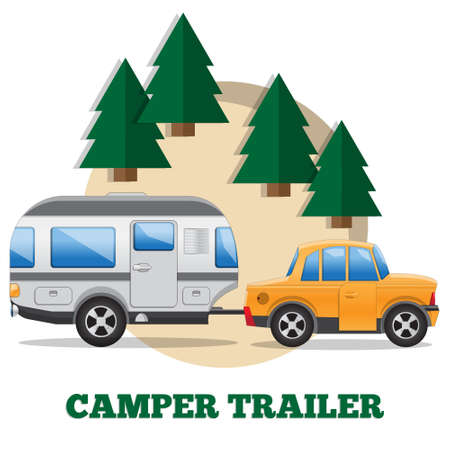Understanding Wild Camping: UK Perspectives
Wild camping in the UK carries a distinct charm, rooted deeply in the country’s appreciation for its rugged landscapes and timeless countryside. At its heart, wild camping means pitching your tent away from formal campsites and immersing yourself in the raw beauty of nature. Unlike organised sites, this practice offers an unfiltered connection to the land—think misty highlands at dawn, ancient woodland alive with birdsong, or windswept moors beneath a canopy of stars. The British have long held a quiet reverence for their green spaces, with traditions of rambling and exploring passed down through generations. This love affair with the outdoors is woven into the national identity, reflected in literature, art, and everyday escapes to nature. Yet wild camping is more than just a pastime; it is an invitation to experience freedom and solitude while honouring the spirit of the landscape. As you wander through heather-clad hills or pause by a bubbling brook, you join a lineage of explorers who cherish the untamed corners of Britain. Here, wild camping becomes not just an adventure but a mindful engagement with the land—a gentle reminder to tread lightly and savour every moment beneath open skies.
Legal Landscape: Where Can You Legally Camp?
Embarking on a wild camping adventure in the UK is as much about embracing the landscape as it is about navigating a complex tapestry of laws and local customs. The legal status of wild camping varies significantly across England, Scotland, Wales, and Northern Ireland, reflecting each region’s unique relationship with its countryside.
England and Wales: Restricted but Not Impossible
In England and Wales, the right to pitch your tent on open land is generally restricted. Wild camping without landowner permission is technically unlawful, save for a few exceptions. Dartmoor National Park has historically permitted limited wild camping, though recent legal challenges have altered access in certain areas. Elsewhere, the vast majority of land remains private, requiring campers to seek explicit consent from landowners—an act that fosters respect and connection with local communities.
Scotland: The Right to Roam
Scotland stands apart with its progressive “right to roam” legislation enshrined in the Land Reform (Scotland) Act 2003. Here, wild camping is generally permitted on most unenclosed land, provided you follow the Scottish Outdoor Access Code: camp in small numbers, stay only for two or three nights in one place, and leave no trace. This ethos of responsible enjoyment is deeply woven into Scottish culture.
Northern Ireland: Private Land Prevails
Northern Ireland presents a more restricted landscape. Most land is privately owned, and there are no statutory rights allowing wild camping. Permission must be sought from landowners or look for forest parks and designated areas where informal camping may be tolerated.
| Region | General Legal Status | Notable Permitted Areas |
|---|---|---|
| England | Permission required; some exceptions | Dartmoor (limited), some Lake District sites |
| Wales | Permission required; very limited exceptions | Certain remote Snowdonia spots (with permission) |
| Scotland | Generally permitted under Access Code | The Highlands, Cairngorms National Park |
| Northern Ireland | Permission required everywhere | Some Forest Parks (by arrangement) |
This patchwork of laws means that while the call of the wild beckons throughout the UK, your approach must be tailored to each region’s rules. By understanding where you can legally camp—and respecting both written law and unwritten local customs—you ensure that your outdoor experience remains harmonious and sustainable for all who wander here.

3. Wild Camper’s Code: Ethics and Etiquette
To truly immerse yourself in the British countryside and preserve its magic for generations to come, it’s essential to follow a Wild Camper’s Code built on respect, care, and understanding. The cornerstone is the ‘leave no trace’ philosophy: take away everything you bring, from tent pegs to food wrappers, ensuring not even a whisper of your visit remains. Pitch your tent discreetly—far from footpaths, homes, and livestock—and move on after a single night, blending into the rhythm of nature. Fires are rarely appropriate in the UK due to risks and local laws; instead, use a portable stove for a warming cuppa or supper under the stars. Engage with local communities and landowners graciously—always seek permission if you’re unsure about camping rights on private land, greet passers-by with a friendly nod, and show gratitude for access to these cherished landscapes. Respect wildlife by keeping noise low, dogs under close control, and maintaining distance from nesting birds or grazing herds. If you encounter other wild campers, offer a smile but maintain each other’s solitude; the beauty of wild camping lies in quiet moments and mindful presence. By embracing these best practices, you become not just a visitor, but a thoughtful steward of Britain’s wild places.
4. Treading Lightly: Sustainability in the British Outdoors
Wild camping in the UK is a treasured experience, allowing you to immerse yourself in the gentle hush of moorland mornings and the soft glow of twilight beneath ancient trees. Yet with this privilege comes responsibility. The British countryside is delicate, shaped by centuries of tradition and teeming with wildlife that depends on undisturbed habitats. To ensure future generations can savour these same moments, every wild camper should embrace sustainable practices—leaving no trace and nurturing the land as they go.
Minimising Your Environmental Footprint
Every action counts when you’re out in the wild. Here are mindful tips to help reduce your impact:
| Sustainable Practice | How to Implement |
|---|---|
| Leave No Trace | Pack out all rubbish, including food scraps and biodegradable items. Never bury waste, as animals may dig it up. |
| Stick to Established Paths | Avoid trampling vegetation by using existing trails and pitches wherever possible. |
| Avoid Open Fires | Use a portable stove for cooking. Open fires can scar landscapes and pose significant wildfire risks, especially during dry spells. |
| Camp in Small Groups | Smaller groups cause less disturbance to wildlife and reduce cumulative impact on sensitive areas. |
| Respect Water Sources | Camp at least 30 metres from lakes or streams, and use only eco-friendly soaps well away from watercourses. |
Conserving UK Wildlife
The UK’s patchwork of hedgerows, woodlands, and moors is home to an extraordinary range of flora and fauna. During nesting season (spring to early summer), be especially cautious—avoid disturbing birds such as skylarks or ground-nesting lapwings. Refrain from picking wildflowers or disturbing stones, which provide shelter for insects and small mammals. If you spot deer or badgers at dusk, watch quietly from a distance; let their evening rituals remain unbroken by your presence.
Enjoying Without Disruption: Countryside Etiquette
The countryside is not only a haven for wildlife but also a working landscape for farmers and rural communities. Respect boundaries by closing gates behind you, keeping dogs under close control (especially around livestock), and following signs or local advice. Embrace the rhythm of rural life—pause to appreciate the dawn chorus or a field aglow with buttercups—without leaving a mark beyond your footprints.
Sustainable Wild Camping Checklist
| Before You Go | While Camping | On Departure |
|---|---|---|
| Plan route & pitch responsibly Check local rules & access rights Pack reusable gear & rubbish bags |
Use minimal-impact cooking Limit noise & light pollution Observe wildlife quietly from afar |
Double-check for litter Re-naturalise pitch site Thank landowners if applicable |
Savour the Simplicity, Protect the Beauty
Wild camping in Britain is about slowing down—listening to curlews calling over heather, watching clouds drift across green hills, feeling the earth breathe beneath your sleeping bag. With each careful choice, you become part of a quiet tradition: treading lightly so that these landscapes remain wild, welcoming, and wondrous for all who follow.
5. Must-Have Gear and Safety Tips
The British countryside holds a particular charm, but it is also renowned for its mercurial weather and remote landscapes. Equipping yourself thoughtfully is essential for both comfort and safety when wild camping in the UK. Here’s what you need to thrive under the shifting skies and rolling hills.
Weatherproof Shelter
Opt for a high-quality, four-season tent with robust waterproofing and sturdy poles, designed to withstand sudden downpours and gusty winds common from the Lake District to the Scottish Highlands. Don’t forget an extra groundsheet to keep damp at bay—British nights can be especially dewy.
Layered Clothing System
The art of layering is your best defence against the UK’s unpredictable elements. Start with moisture-wicking base layers, add an insulating mid-layer (think fleece or wool), and top off with a breathable, fully waterproof jacket and trousers. A warm hat and gloves are indispensable even in summer months, as temperatures can plummet after sunset.
Reliable Navigation Tools
Never rely solely on your phone; bring an Ordnance Survey map and compass, especially if you’re venturing into moorland or mountain territory where signal may vanish. A GPS device is a useful backup, but traditional navigation skills remain paramount in these wild places.
Essential Safety Kit
A well-stocked first aid kit is non-negotiable. Include blister plasters, insect repellent, sunscreen—even in cloudy weather—and any personal medication. Add a whistle for emergencies, a torch or headlamp with spare batteries, and a portable power bank for recharging devices.
Sustainable Comforts
Pack a lightweight camping stove (open fires are rarely allowed) and reusable utensils to minimise environmental impact. Carry a refillable water bottle plus purification tablets or filters—the UK’s streams may look pristine but are not always safe to drink from untreated.
Leave No Trace
Bring rubbish bags to pack out all waste, including food scraps and biodegradable items, preserving the natural beauty for those who follow. Consider a trowel for responsible toileting away from water sources—another quiet nod to both ethics and comfort on your journey through Britain’s wild heartlands.
6. Inspiration: Favourite Wild Camping Spots Across the UK
There is an undeniable romance to wild camping in the UK, where the landscape itself becomes both your shelter and your muse. If you’re seeking inspiration for your next adventure, here are a few evocative places that capture the spirit of untamed nights beneath British skies.
The Lake District: Windswept Fells and Hidden Tarns
The Lake District’s fells rise in undulating waves, their slopes brushed by soft bracken and misty rain. Wild camping here—on a quiet shoulder above Buttermere or beside a mirror-like tarn near Scafell Pike—feels like stepping into poetry. Remember, while discreet wild camping is tolerated in the higher fells, always pitch late, leave early, and take every trace with you.
Scottish Highlands: Heathered Moors and Ancient Pines
Scotland’s Right to Roam laws open vast swathes of moorland and ancient Caledonian forest to responsible campers. Picture yourself among purple heather on Rannoch Moor, or nestled below the sentinel pines of Glen Affric as stags bellow at dusk. Here, solitude and wildness blend with a deep sense of history—just be sure to follow the Scottish Outdoor Access Code for respectful stays.
Snowdonia: Rugged Peaks and Crystal Streams
In Wales, Snowdonia’s craggy heights offer secret spots where you can wake to sunrise gilding Glyderau’s ridges or the call of skylarks over Cwm Idwal. While wild camping isn’t technically permitted, it’s often accepted if you remain unobtrusive and respectful of both landowners and fellow walkers.
Dartmoor: Granite Tors and Misty Haze
Dartmoor is unique in England for its legal right to wild camp on certain common lands. The moor’s granite tors rise from rolling grasslands, often shrouded in dreamy morning mist. Stay within designated areas, keep groups small, and immerse yourself in the timeless hush of this ancient landscape.
Sustainable Adventure Awaits
No matter where you roam—from Yorkshire’s windswept dales to Cornwall’s sea-cliff headlands—the essence of UK wild camping lies in treading lightly. Let these landscapes inspire not only wonder but also care: pack out every scrap, choose spots away from busy paths, and let nature’s beauty shape your every journey under the stars.

